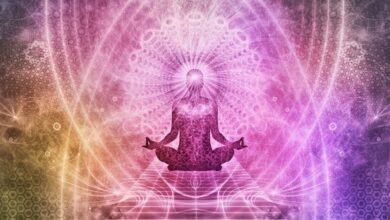
“How Extroverts (E) and Introverts (I) Recharge: Understanding MBTI Energy Sources”
The Myers-Briggs Type Indicator (MBTI) is a widely used personality framework that categorizes individuals into 16 distinct personality types based on four key dichotomies. One of the most fundamental distinctions in the MBTI is the Extraversion (E) vs. Introversion (I) dimension, which describes how people gain and expend energy.
Understanding whether you lean toward Extraversion (E) or Introversion (I) can help you optimize your daily routines, social interactions, and self-care habits. Let’s explore how extroverts and introverts recharge their energy differently.
How Extroverts (E) Recharge
Extroverts are energized by external stimulation, including social interactions, group activities, and engaging environments. For them, energy comes from:
- Socializing – Conversations, parties, and group activities invigorate extroverts.
- External Engagement – Being around people, trying new experiences, and staying active helps them feel refreshed.
- Verbal Processing – Talking through ideas out loud helps extroverts think and recharge.
- Stimulating Environments – Busy, dynamic settings (like cafes, events, or workplaces) boost their energy.
If you’re an extrovert, you may feel drained after long periods of solitude. To recharge, seek out social interactions, collaborative projects, or lively atmospheres.
How Introverts (I) Recharge
Introverts draw energy from within, preferring solitude, quiet reflection, and deep one-on-one conversations. Their energy sources include:
- Solitude – Time alone allows introverts to reflect and regain energy.
- Low-Stimulation Settings – Quiet spaces, nature, or cozy environments help them unwind.
- Deep Conversations – While large groups drain them, meaningful one-on-one talks can be energizing.
- Internal Processing – Thinking before speaking and enjoying solo hobbies (reading, writing, or creative work) recharges them.
Introverts may feel exhausted after prolonged socializing. To recharge, they need downtime—whether through alone time, meditation, or engaging in solo activities.
Balancing Energy in Daily Life
Whether you’re an extrovert or introvert, recognizing your energy needs is crucial for well-being.
- Extroverts should schedule social activities but also practice occasional quiet time to avoid burnout.
- Introverts benefit from social connections but should prioritize alone time to stay balanced.
Understanding MBTI energy dynamics helps you structure your day in a way that keeps you energized and productive. By honoring your natural tendencies, you can thrive in both personal and professional settings.
Final Thought
The MBTI reminds us that neither extraversion nor introversion is “better”—they simply reflect different ways of interacting with the world. By embracing your natural energy sources, you can live a more fulfilling and balanced life.
Would you like to explore how other MBTI traits (sensing/intuition, thinking/feeling, and judging/perceiving) influence behavior? Let us know in the comments!





